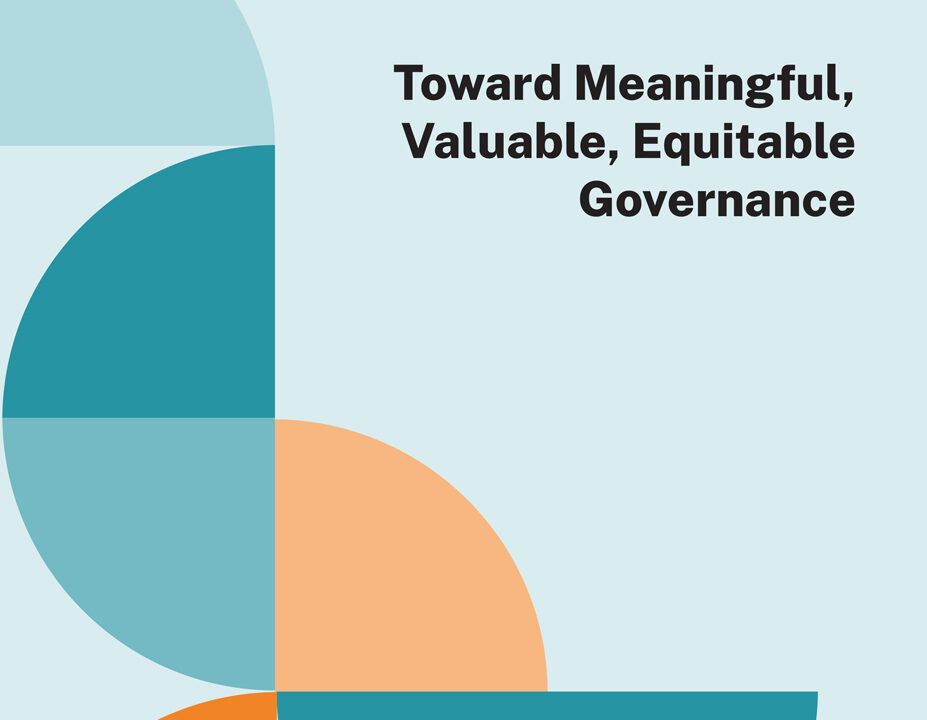
Toward Meaningful, Valuable, Equitable Governance
Learn how effective philanthropic governance can support nonprofits and communities. GEO shares promising practices for boards and grantmaking leaders.
- Guide
- Publication
Featured

Learn how effective philanthropic governance can support nonprofits and communities. GEO shares promising practices for boards and grantmaking leaders.
Since 2008, Grantmakers for Effective Organizations (GEO) has tracked trends in effective grantmaking through its national…
This resource aims to provide grantmakers with tools for advancing community-driven practices, amplify examples from the…